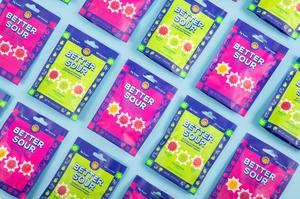Expo West: Better-for-You Chewy Candies Encompass Nostalgia, Global Flavors
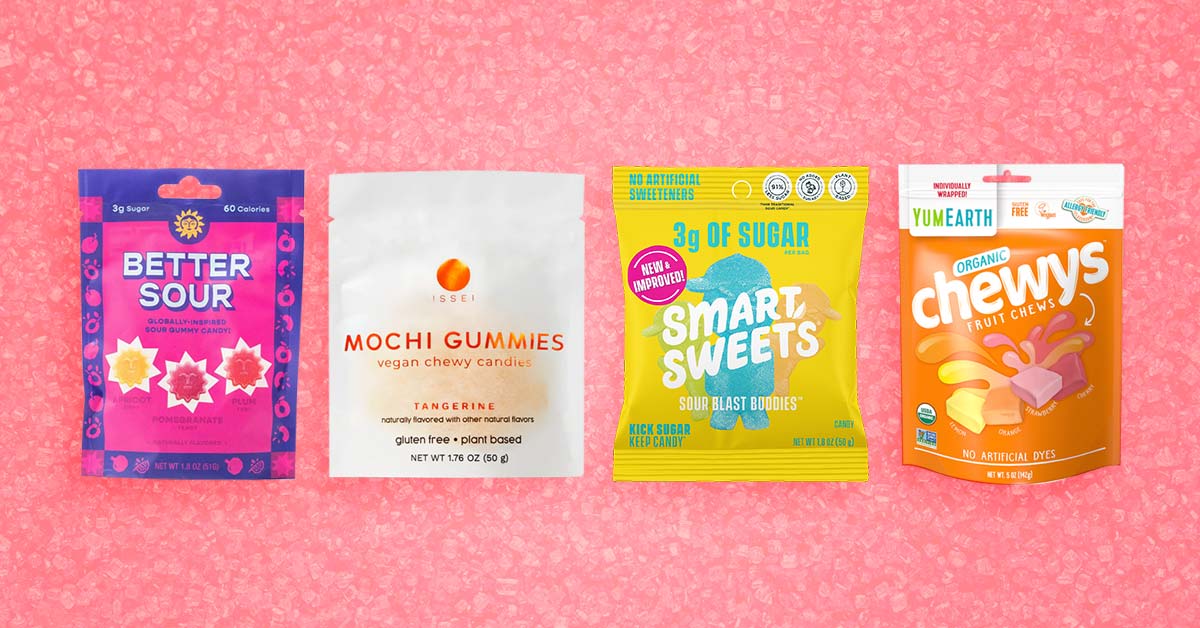
Since the onset of the pandemic, many American consumers have changed their grocery shopping habits to prioritize healthy eating. Against that backdrop, the confectionery industry at large has shifted, with an increasing number of BFY options hitting the market alongside conventional offerings.
According to a report from the National Confectioners Association, non-chocolate candy – which spans gummies, chewy candy, hard candy, licorice, lollipops and marshmallows – remains a consumer favorite through prosperous, inflationary, and pandemic times. The gummy market in particular was valued at $23.9 billion in 2023 and is projected to grow at a CAGR of 11.8% between 2024 and 2030, fueled by a demand for unique flavors and plant-based offerings, as reported by Grand View Research.
With the continued rise of BFY confectionery, attributes such as lower sugar and natural ingredients have become table stakes. In what some have deemed the new wave of candy, brands are actively seeking out new ingredients, textures and global flavors to capture consumers’ attention, and their wallets.
Those trends will be on display this week at Natural Products Expo West, where a range of brands will highlight new creations aimed at drawing more consumers into the better-for-you chewy candy space.
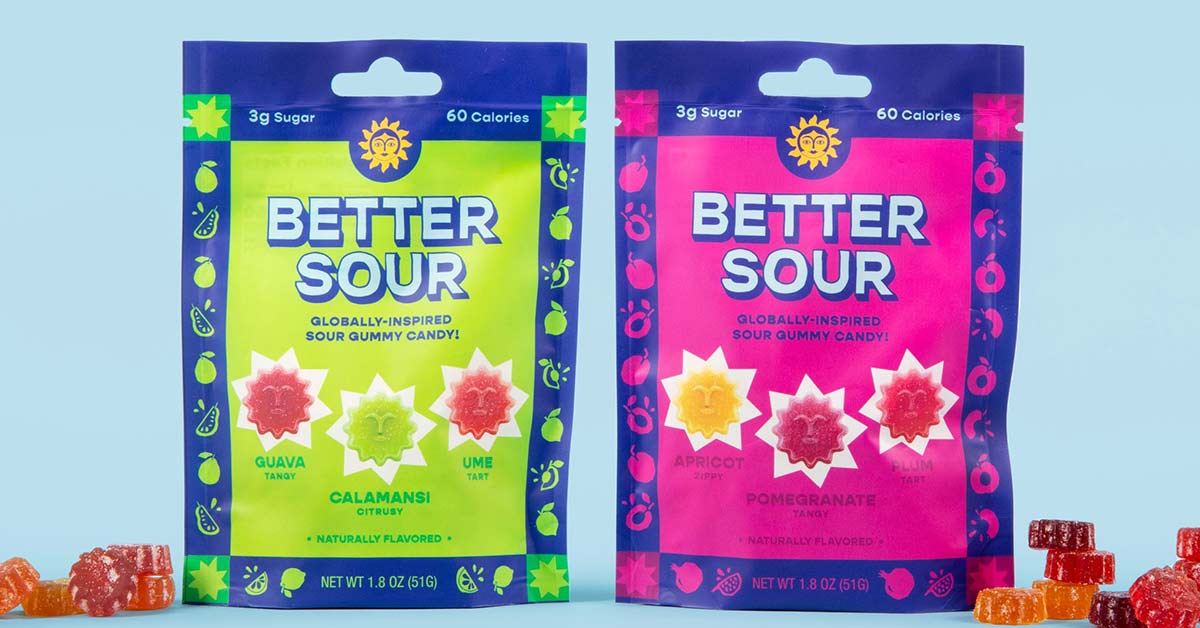
The Third Wave
According to Bella Hughes, co-founder of “globally-inspired” sour gummy brand Better Sour (Booth #N1235) candy is currently entering its “third wave,” centered around better-for-you products with quality ingredients, bold flavors and an authenticity that’s often an ode to the founders’ heritage.
Better Sour was created by Hughes and lifelong friend Semira Nikou, who serves as Better Sour’s CEO. The duo was inspired to expand cultural representation in the candy aisle with a confection that paid homage to their upbringing in Hawaii as daughters of Iranian immigrants.
“What we really wanted to capture was our relationship with sour, which is a tart tang in its natural state, and to experience that in a candy,” said Hughes, adding that many Western-centric sour gummies are aimed at “burning your mouth off” and feature lab-created flavors.
The brand’s lineup includes an Asia Pacific-themed mix featuring guava, calamansi and ume and a Middle East stone fruit mix consisting of pomegranate, apricot and plum. Each 1.8 oz. bag retails for a SRP of $3.29-3.99. At Expo West, Better Sour will unveil its latest innovation, also inspired by the duo’s childhood in Hawaii. It will be the brand’s first single-flavor offering.
“We’re going after the same consumer that’s grabbing a Poppi instead of a Coke every time they reach for a soda. Maybe they still have a Coke once in a while, but their palates have expanded,” said Hughes.
Since making its retail debut in Erewhon less than one year ago, the Austin, Texas-based brand has expanded to 1,500 doors nationwide, including last month’s launch into nearly 500 Target stores and Target.com. Hughes credits the brand’s rapid brick-and-mortar distribution growth to her muscle memory from building other CPG brands – she is the co-founder and former president of Shaka Tea – as well as the rising consumer demand for global flavors.
“I think buyers are quite astute to some of the macro trends, like global flavors and the heritage rich tart tang permeating many areas [in food and beverage],” said Hughes. “Our flavor profiles largely reflect the changing demographics of America having a very diverse culture, as well as the rise in food culture.”
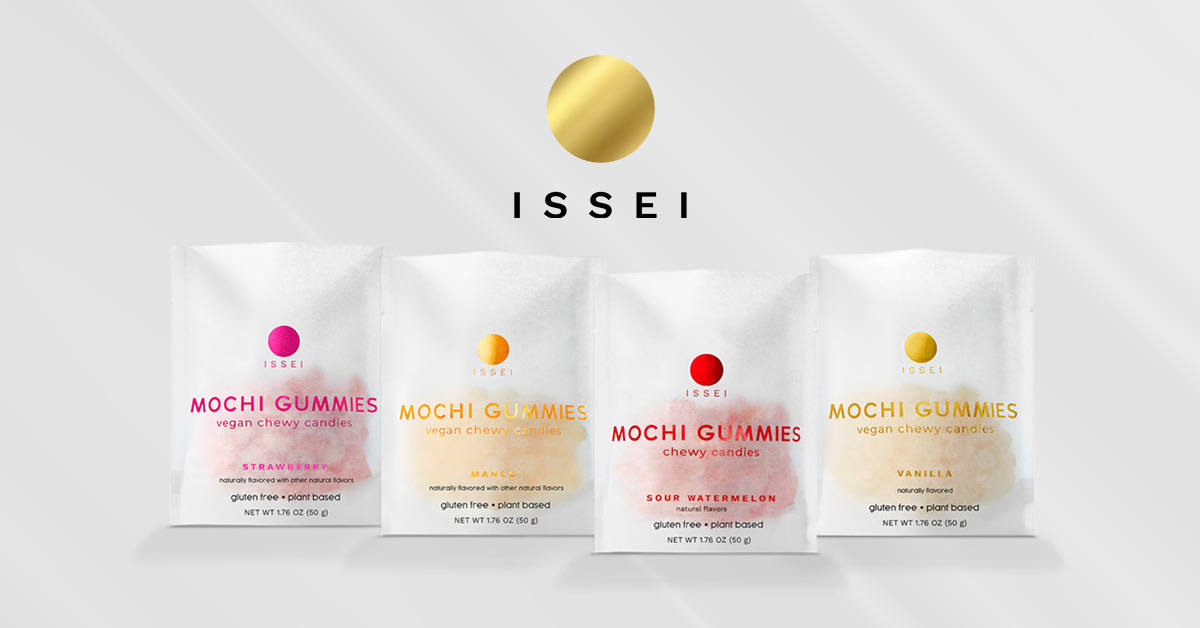
Turning to Texture
Bethesda, Maryland-based Issei (Booth # N649) produces a line of gummies inspired by founder and CEO Mika Shino’s cultural heritage. They feature a unique texture, achieved by utilizing mochi as its base ingredient.
According to Shino, a first-generation Japanese immigrant, Issei’s first iterations were created in her home kitchen while seeking out gelatin-free gummy candies for her two young sons. Chewy candies originated in Germany and England and “have been made in the same way (with gelatin from boiled pig skin and bones) for over 100 years,” she said, adding that pectin-based alternatives are “more of a bite than a chew.”
“It’s all about the texture. Everybody’s been playing around with lower-sugar gelatin-based gummies or lower-sugar pectin-based gummies. It’s puzzling to me, and I think for anybody who is new to the industry, [as to] why everyone’s doing it the same way,” said Shino.
Available in five flavors – Mango, Strawberry, Vanilla, Sour Watermelon and the most recent addition, Tangerine – the gummies are crafted with cane sugar and are free of artificial ingredients and colors. Shino has prioritized direct relationships with retail buyers, opting not to use a broker. The decision has proved fruitful: only a year and a half since its exclusive debut at Whole Foods Market, the brand is now sold in 870 stores nationwide including Sprouts, Raley’s and Hy-Vee, among others.
“We’re lucky to have retailers say we’re in a white space and we’re going to bring incremental growth,” said Shino. “People aren’t going to choose between us and a gummy bear; they’re going to buy us and a gummy bear because the texture is so different.”
At Expo West, the brand will showcase its new Tangerine flavor, which was launched earlier this month in honor of Women’s History Month. According to the brand, Tangerine symbolizes joy and honors “all that women do to bring life, joy and perseverance and so much more to the universe.”
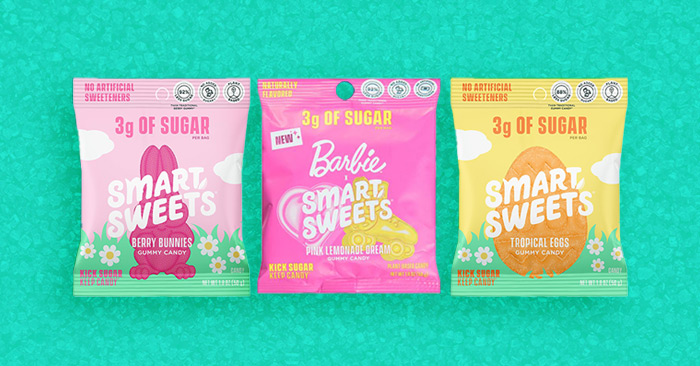
Eliciting Nostalgia
Elsewhere, longstanding brands like YumEarth (Booth #N605) – founded in 2007 – and SmartSweets (Booth #5393) – founded in 2016 – are crafting better-for-you iterations (be it using natural colorings or lower levels of sugar, or both) of legacy products like Starburst, Swedish Fish, and Sour Patch Kids.
SmartSweets will take to the show floor with what it’s calling its most critical launch to date – the relaunch of four core SKUs in the U.S. The “New & Improved” product formula, used in the brand’s Peach Rings, Sweet Fish, Sourmelon Bites, and Sour Blast Buddies, ditches allulose and increases the amount of Isomalto-oligosaccharide.
The Vancouver-based brand began experimenting with products made with allulose – a low-glycemic index sweetener found in foods like raisins and figs – in 2020, shortly after the sweetener received FDA approval to be excluded from total and added sugar counts on Nutrition Facts panels. Since launching in retail – the products are now available in roughly 50,000 stores in the U.S. – SmartSweets has reformulated its gummies at least three times, not including this most recent iteration.
“We exist to create the best-tasting low-sugar candy in the marketplace. And that’s not a one-time event,” said SmartSweets co-CEO Heidi Dorosin. “It’s a practice, it’s a constant. We’re always going to be pushing the envelope on great taste and low sugar.”
The brand has found great success in its “patient urgency” approach, drawing the attention of private equity firm TPG Capital in 2020, which acquired a majority stake in the company for $360 million.
SmartSweets has also capitalized on social media to drive consumers to retailers, and today it will unveil its newest product – a collaboration with Mattel – with the help of its influencer network. As evidence that Barbie fever is still strong following #Barbenheimer last year, SmartSweets this month will roll out a new pack of Pink Lemonade-flavored gummies featuring the iconic B, the Barbie logo and a roller skate.
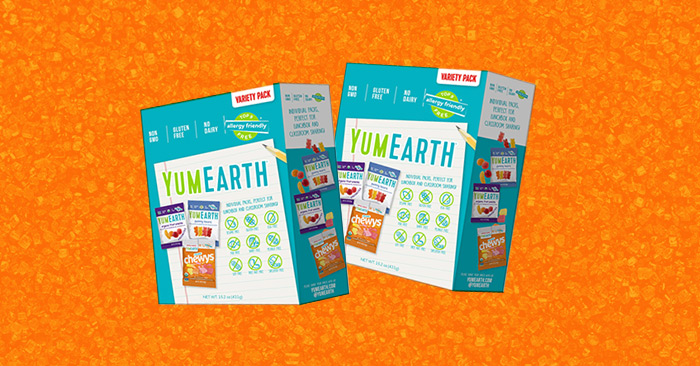
Meanwhile, YumEarth has established itself as a leader in the allergen-friendly candy category by finding innovation for key moments in time (i.e. four core seasons plus back-to-school). And, for everyday platforms, chief growth officer Jeff Grossman said the brand looks to create better-for-you iterations of common candies the consumer understands that are available in the “corn syrupy marketplace” and make them clean.
The brand’s chewy candy products – Organic Chewys, Gummy Bears, Giggles and Organic Sour Giggles – are made with cane sugar and are colored by concentrates such as carrot and blackcurrant. Most recently, the brand rolled out an Easter Egg Hunt Kit at key retailers like Target, Whole Foods and Amazon.
“For YumEarth, more than 25% of our sales are seasonal as it’s a great opportunity to gain secondary displays as well as introduce the brand to new consumers,” said Grossman. “With the increase of clean eating without sacrificing taste, our seasonal business has grown tremendously over the last several years.”
Looking ahead to Expo West, YumEarth is slated to debut new non-chocolate portfolio additions.


